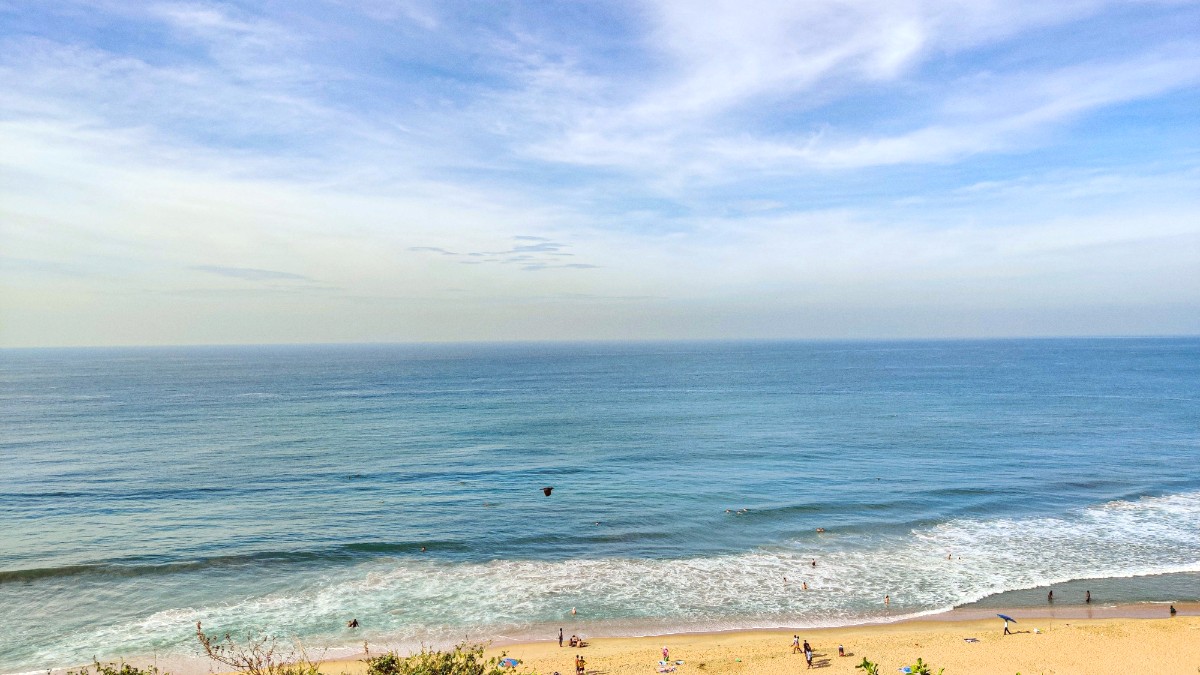
Kerala, India
Varkala experiences warm temperatures year-round, typically ranging from 25°C to 32°C (77°F to 90°F). Humidity stays high, especially during the monsoon months, often reaching 70-90%.
The dry season (December to May) sees the least rainfall, with December to March considered the peak season, offering pleasant temperatures, sunny days, and cooler evenings. April to May are the hottest months, with temperatures sometimes exceeding 35°C (95°F). The monsoon season (June to December) delivers significant rainfall, with heavy, consistent downpours from June to September.
Each season in Varkala presents distinct advantages and considerations for travelers.
Your priorities guide the timing of your visit to Varkala.
Peak tourism period
Weather for beach activities, swimming, and sightseeing is ideal. Sunny days, comfortable evenings. All tourist services operate fully.
Most crowded time. Accommodation and flight prices are highest, especially around holidays. Popular spots may feel busy.
Transition periods
Oct-Nov: Lush green landscape post-monsoon, fewer crowds, reasonable prices. Apr-May: Lower prices than high season, quieter experience.
Oct-Nov: Some services ramping up, sea may be choppy. Apr-May: Intense heat limits midday outdoor activities.
Off-peak for relaxation
Accommodation prices are significantly reduced. Often recommended for intensive Ayurvedic treatments, quiet and reflective atmosphere.
Heavy rainfall disrupts beach activities. Sea is often too rough for water sports. Many beach shacks and some businesses may close.
The Southwest Monsoon (June to September) brings intense, continuous rainfall, with daily downpours. The Northeast Monsoon (October to December) presents milder, more scattered showers.
April and May are the hottest months. Protect yourself from the sun. Stay hydrated, wear light clothing, and avoid strenuous outdoor activity during peak daytime hours (11 AM to 4 PM).
December to March are the prime months. Sea is calm, weather sunny and pleasant.
The monsoon season (June to September) is often recommended. Humid climate benefits rejuvenation therapies.
December to March presents comfortable weather for walking, visiting temples, and exploring surrounding areas.
Monsoon season for lush green landscapes and dramatic skies. Dry season for clear beach views.
Check local calendars for events that might coincide with your visit, often outside peak tourist times.
Travel to Varkala, India, calls for proper documentation, specifically regarding visas. Most international visitors need a visa to enter India.
This electronic visa is available to citizens of over 150 countries. You apply for it online through the official Indian government portal. You must apply at least four days before your arrival date.
For travelers needing a longer stay, visiting for purposes not covered by the e-Visa, or those from countries not eligible for the e-Visa, a regular visa is necessary.
Yellow Fever vaccination is a health requirement for entry into India if you are arriving from, or have transited through, a country with a risk of Yellow Fever transmission.
The official currency of India is the Indian Rupee (INR).
Exchange rates fluctuate. Check the current rate before your trip to understand the value of your home currency against the Rupee.
Larger hotels and many restaurants, especially on the North Cliff, accept credit and debit cards. However, smaller shops, local eateries, and guesthouses often prefer or need cash payments. Always carry sufficient cash for smaller transactions.
Estimated daily costs: ₹1,500 - ₹3,000 (approx. $18 - $36 USD).
Accommodation: ₹500 - ₹1,000 (hostel dorm or basic guesthouse).
Meals: ₹400 - ₹800 (street food, local dhabas, less touristy restaurants).
Estimated daily costs: ₹3,000 - ₹6,000 (approx. $36 - $72 USD).
Accommodation: ₹1,500 - ₹3,000 (comfortable room near North Cliff, AC/private bath).
Meals: ₹800 - ₹1,500 (mid-range restaurants, fresh seafood).
Estimated daily costs: ₹8,000+ (approx. $96+ USD).
Accommodation: ₹4,000+ (boutique resorts, premium hotels with amenities).
Meals: ₹2,000+ (fine dining, international cuisine, daily fresh seafood).
| Category | Item/Service | Price (INR) |
|---|---|---|
| Accommodation | Hostel bed / Basic Guesthouse | ₹300 - ₹1500 |
| Accommodation | Mid-range Hotel / Luxury Resort | ₹1500 - ₹5000+ |
| Meals | Street Food / Local Eatery / Fine Dining | ₹50 - ₹1000+ |
Prepare for local conditions and know how to respond to common issues.
Mandatory if arriving from or transiting through a country with Yellow Fever transmission risk.
Hepatitis A & B, Typhoid, Tdap, MMR, Japanese Encephalitis, Rabies. Consult a travel health clinic or your doctor.
Bring your valid Yellow Fever Vaccination Certificate. Without it, quarantine or entry refusal may apply.
Prevention Strategies
Traveler's Diarrhea: Drink sealed Bottled water, check seals, avoid ice. Eat hot, freshly cooked food. Peel fruits. Wash hands frequently or use Hand sanitizer.
Mosquito-borne Diseases (Dengue, Chikungunya): Use Insect repellent containing DEET or Picaridin. Wear long sleeves/pants in evenings. Sleep under a Mosquito net.
Heat Exhaustion/Stroke: Stay hydrated. Wear light, breathable clothing. Avoid strenuous outdoor activities during the hottest parts of the day. Sunburn: Use broad-spectrum Sunscreen with high SPF. Wear a Wide-brimmed hat and Sunglasses. Seek shade during peak sun hours.
Varkala has local clinics for minor ailments. For serious emergencies, travel to larger, better-equipped hospitals in Kollam or Trivandrum (e.g., KIMS Hospital, Ananthapuri Hospital).
Readily available in Varkala Town and on the Cliff, stocking common medications.
Police: 100, Ambulance: 102, Fire: 101.
Varkala generally maintains safety for tourists. The North Cliff and beach areas are well-lit and feature visible tourist presence.
Awareness of environmental risks.
Heavy rains (June-September) can cause localized flooding and disrupt travel plans, including road closures or public transport delays.
During monsoon, the Arabian Sea becomes extremely rough with strong currents. Swimming and water activities may be prohibited. Follow local warnings.
Even in non-monsoon seasons, rip currents are present. Swim only in designated areas. If caught, swim parallel to shore until escape is possible.